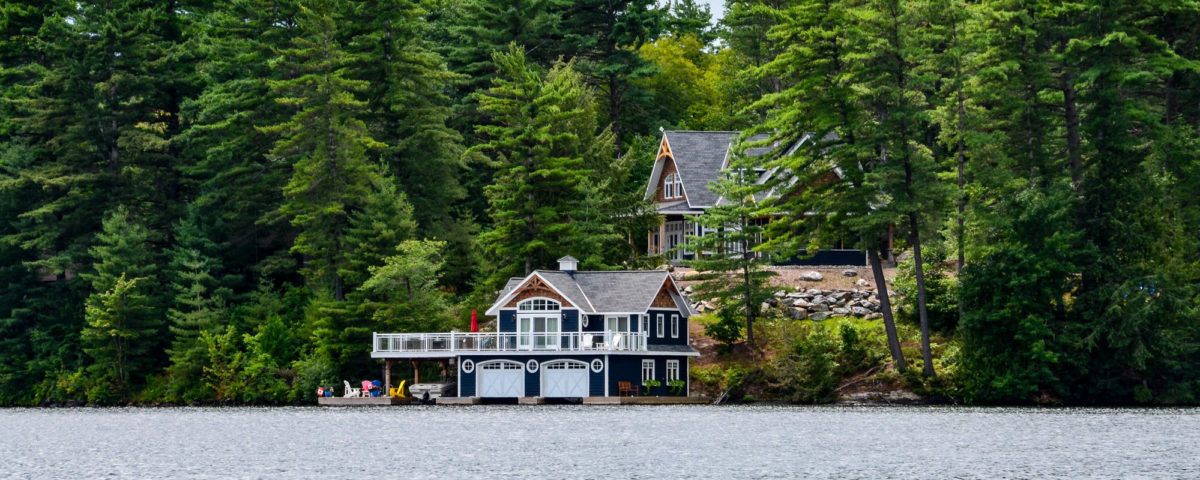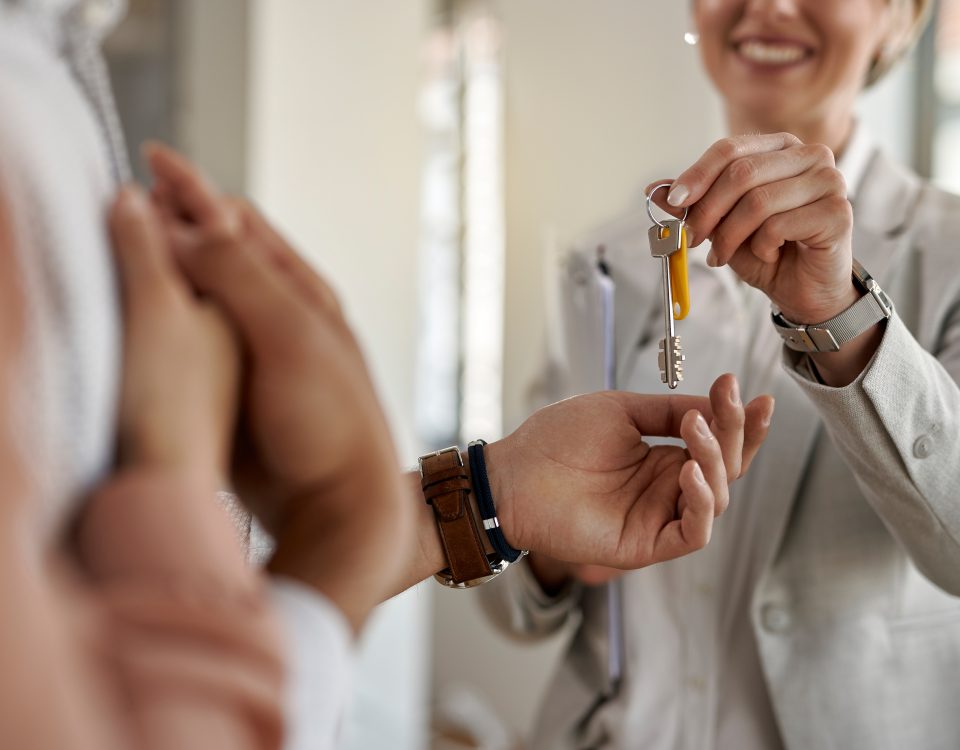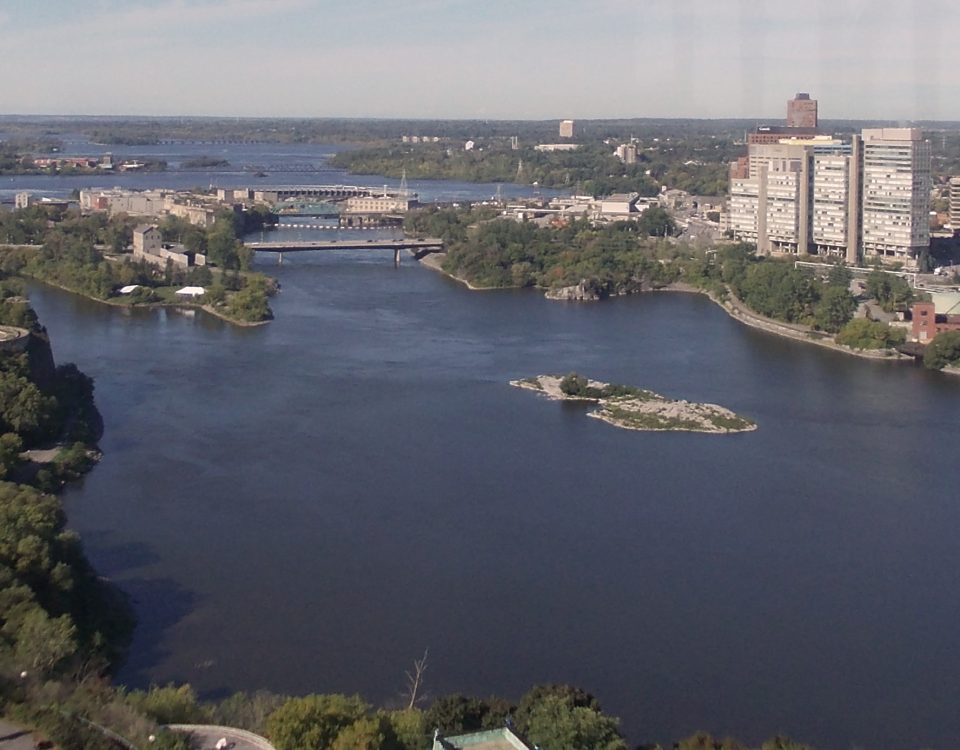Waterfront Property

10 Reasons to Love Ottawa
May 28, 2019
Best Trails in Ottawa
August 9, 20199 Tips For Purchasing a Waterfront Property
There is no doubt that we have all toyed with the idea of owning some sort of property on the water. There are few things better than sitting on a dock, drink in hand in the beaming sun on a hot summer day. If you have been dreaming of a home or cottage on the water, there are a few things to consider when finding the right waterfront property for you. Some people are interested in boating and water sports, some enjoy privacy and serenity, some may never need to step foot in the water, just have a nice sunset view over it. If you are thinking of purchasing a place on the water, check out the following top 9 tips for purchasing a waterfront property.
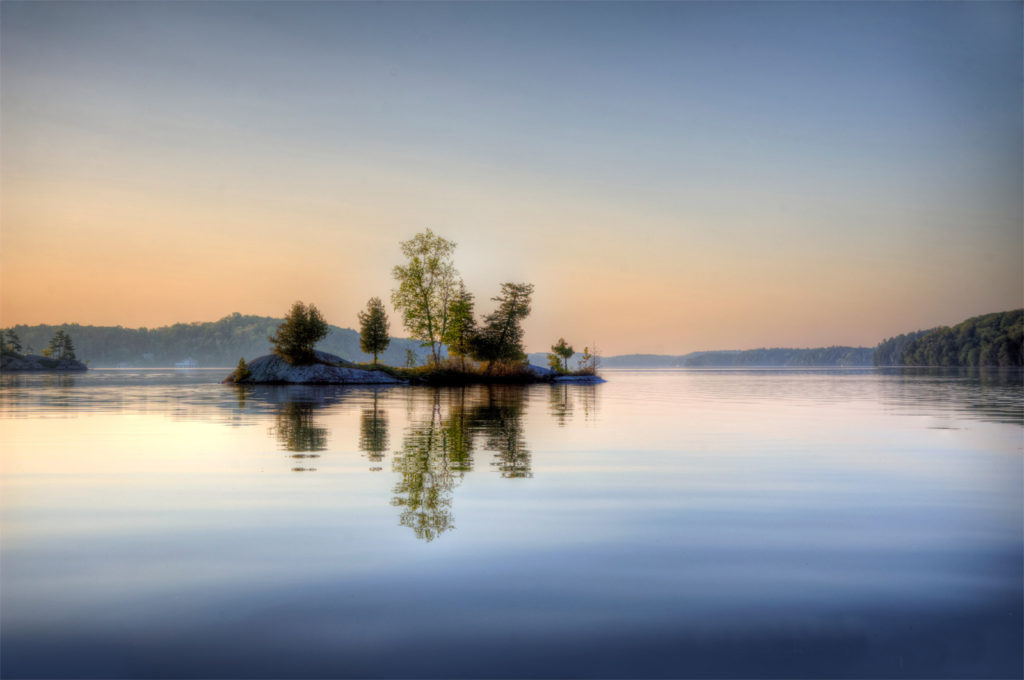
1. Choose the right body of water to suit your needs
Are you purchasing a waterfront property so that you can go boating or kayaking? Are water sports important to you? Do you have children who will want to play in the water? Are you looking to swim or suntan on a sandy beach? There are many different options when considering which body of water is right for you. A larger body of water might be best for you if you want to boat all day and explore different inlets and bays. If paddling around on a kayak or canoe sounds good to you, a smaller body of water may be better. Water levels will change over the course of a year. You will want to know how high or low the water will get during the different seasons. Some shorelines offer a straight drop off, while others have a sloping, gradual drop off. Some are sandy, others are rocky. If you are looking to swim, you probably won’t want to be in a shallow area with lots of seaweed and lily pads. Ontario offers many different types of waterfront. It is important to do research on a body of water before checking out a property on it.
2. Thoroughly inspect the water, docks and shoreline
Some docks have been well maintained by previous owners, while some have not. When inspecting a dock, you will want to check for any rotting or missing boards that could be dangerous to your safety. If possible, you will also want to take a look at where the water meets the dock to check for any ice damage. Water levels are bound to change at certain points of the year. This could wreak havoc on your dock and/or shoreline. Waterfront owners sometimes take their docks out for the winter months. Other docks are fastened to the bottom and may take a beating from ice build-up during the winter and thawing months. It is also a good idea to check with neighbours and news headlines to see if there has been any flooding on the body of water you are purchasing on. With the 2017 and 2019 floods that Ottawa has experienced, this is a huge threat that could potentially be devastating to your waterfront property. As with any home purchase, you will want to make sure to have your home inspector come out to professionally inspect the property.
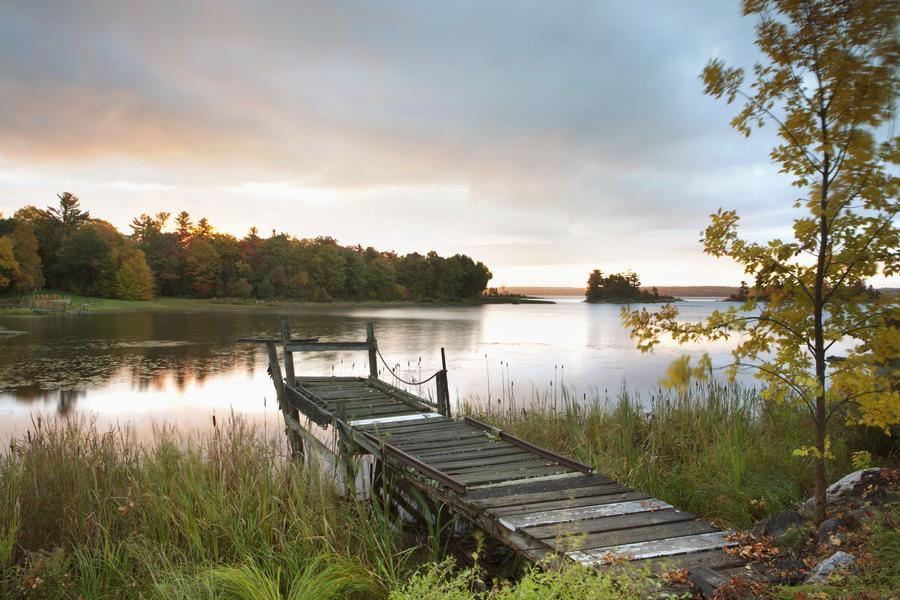
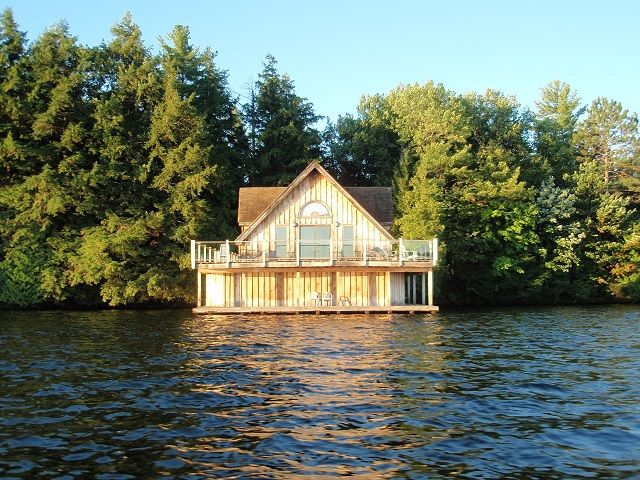
3. Thoroughly inspect the structure of the building
Cottages may not be in pristine shape like a well maintained home in the city. If the property hasn’t been the previous owner’s full-time residence, there could be issues with the home that you will not want to overlook. It is a good idea to check the basement and foundation of the building. This will give you an idea on any water damage that may have occurred. Some waterfront properties may also have boat houses that have fallen into disrepair. It is a good idea to inspect these buildings as well as they will be your responsibility to care for. If the property is water access only (an island property), the septic may be old, or there may not even be one at all. Some of these properties may not even have running water or electricity which could be costly if those are necessities for you. Remember that cottages and vacation homes do not always get the same type of attention as regular homes do. You will want your home inspector to come by and look at both the shoreline and the structure of the building as well.
4. Consider the costs of insurance for the property
Waterfront properties frequently have an increased risk of flood damage which may mean that the insurance cost will be higher than a non-waterfront home. You will want to have a conversation with your insurance broker regarding the exact type of insurance that will fit your needs. A lot of the time, waterfront property owners will rent out their space for certain periods of the year. If this is something you want to do, you will want to make sure that your coverage includes rental income protection. You may also want to consider having your docks insured, and/or any boat houses or other buildings on the property. There are many different insurance plans that will most likely bundle your watercraft and waterfront home into one. It is always best to have a thorough conversation with your insurance broker before making the decision to buy a waterfront property.
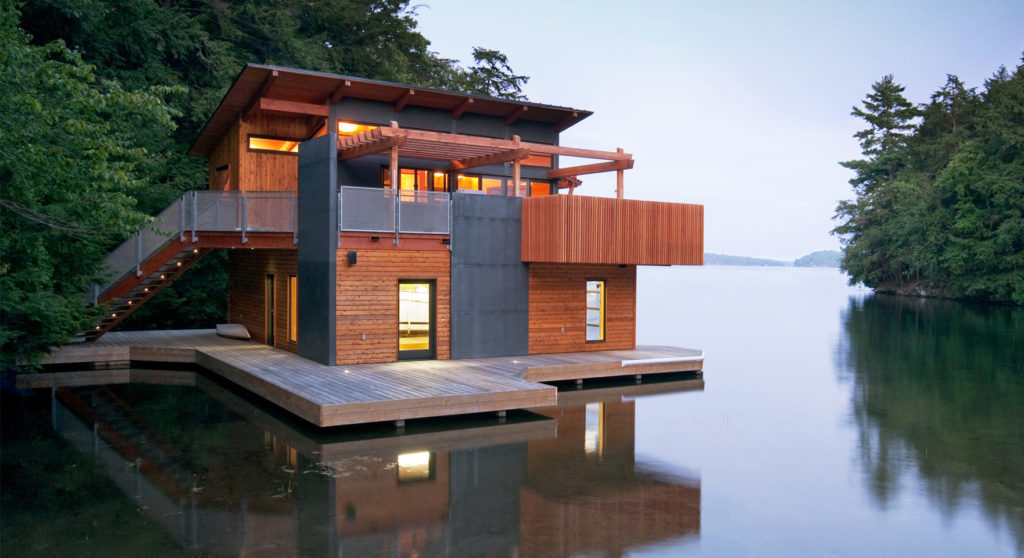
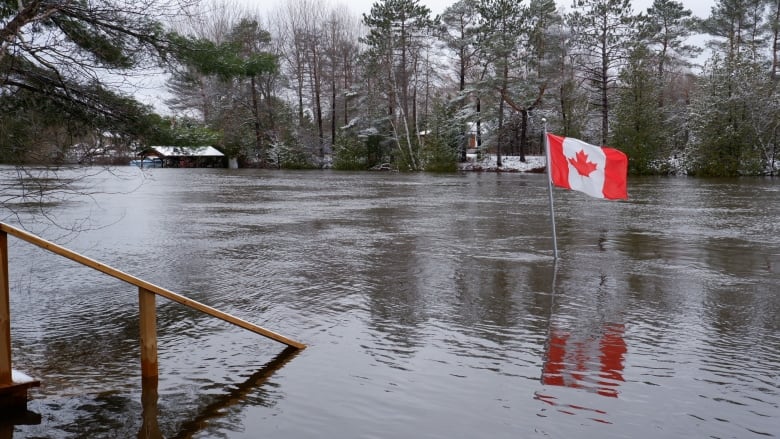
5. Make sure the structure and shoreline can withstand extreme weather
Beautiful waterfront isn’t always sunshine and rainbows. Sometimes the weather can be more extreme on the water. The good news is that Ontario is in a fairly safe area with (hopefully) no risk of hurricanes or tidal waves. This does not mean that the weather is calm and peaceful all of the time. High winds can cause large waves that will crash into your shoreline and docks. Cold weather in the winter will cause the water to freeze over which may also cause damage. If your waterfront property is going to be only a seasonal residence, you will want to learn how to properly winterize the property once fall approaches. When you are close to water, flooding is possible. If you are looking at a home in a flood zone, you need to know the precautions of what this could mean for the property.
6. In rural areas, check out the utility situation
If you are purchasing your waterfront property in a rural area, there is a chance that some regular luxuries may not exist or are harder to obtain. Some areas have very limited cell phone coverage or wifi service. Cable may not be available, so you may need to purchase a satellite dish. More importantly, some rural homes may not have daily essentials such as running water or a septic system. If these are necessities for you, it could be an expensive fee to install these crucial utilities. Sometimes, the running water may be lake intake which may not be safe to drink. With lake intake, there are options for filtering the lake water with water purifiers. If you are purchasing the property as a seasonal cottage, bringing your own water may not be a big issue. If you are purchasing as your year-round home, you will want to do a water test to make sure the water is drinkable. If it isn’t, it may be best to look into options for making the water safe to drink.
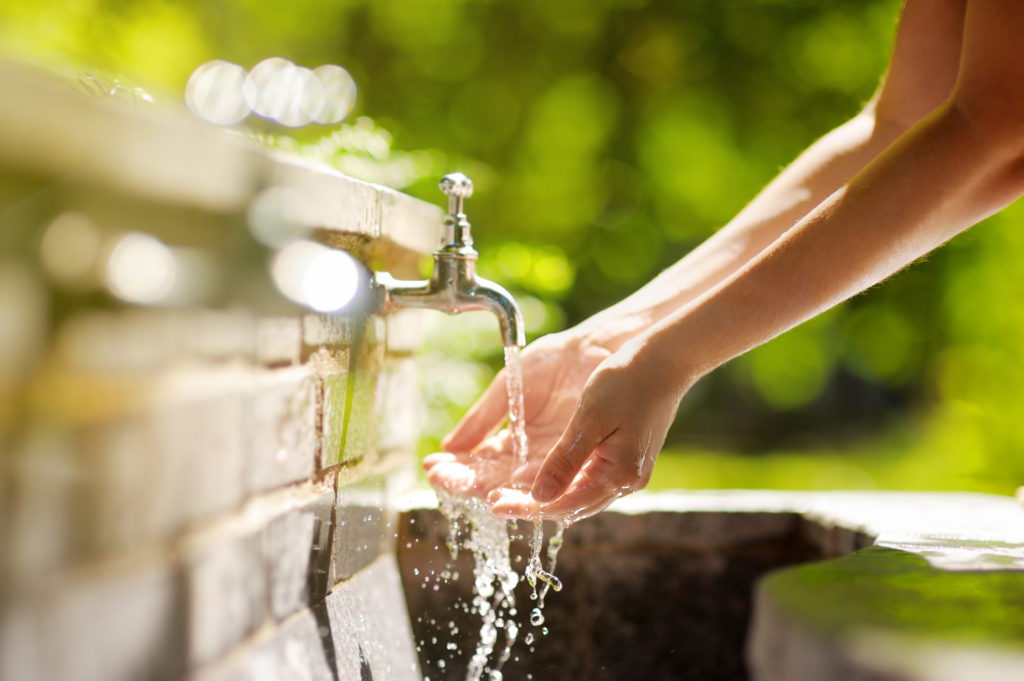
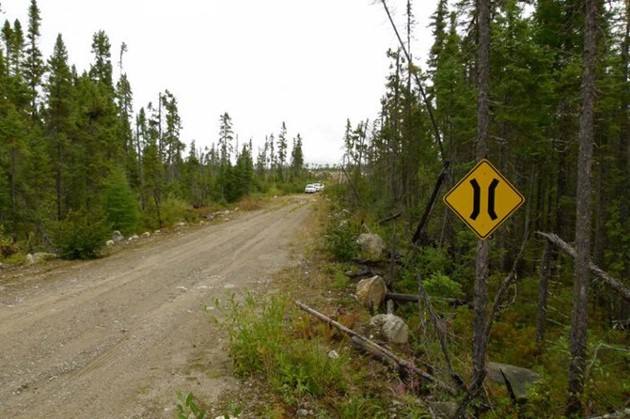
7. Parking and road access
Something to consider when purchasing a rural waterfront property is that the road to get to it may be rough. Sometimes this road may be private for only the residents that live on it. In this case there may be a yearly association fee to pay for the upkeep. If it is not a private road, the road could be uncared for and difficult to drive on. If you are purchasing this property as your full time residence, you will want to make sure that the road is maintained and plowed in the winter. Some rural properties are water access only, meaning that you cannot bring your car to your front door. In these special cases, you will need to think about where to park your car and consider the costs of renting a space. Marinas often offer parking spaces that you can rent for a yearly fee. If you have a chance to speak with some of the locals, you can get a good idea on where to find parking. If you do plan on purchasing a water access property, you will obviously need some sort of watercraft as well to get there.
8. Know exactly what you are buying when purchasing a waterfront property
Though it may seem as though you are purchasing the waterfront, this may not always be the case. If the property is set a long way from the water, there may be public or private property in between the building and the water. Last year, the Susan And Moe Team ran into a situation when a client was looking to purchase an entire island for themselves. Upon investigation, half of that island was actually crown land owned by the Ministry of Natural Resources. Though this may not be a huge deal to you, you will want to make sure to obtain a survey of the land you are purchasing to understand where lot lines end and if you will be purchasing out to the shoreline. It is always best to know what you own before building on or maintaining something that does not belong to you. If there is not already a dock in the water at the property, you should check with local bylaws to make sure that building one will be legal. Many larger waterways are protected by the MNR and may have special rules regarding sizing and materials that can be used to build docks or boathouses.
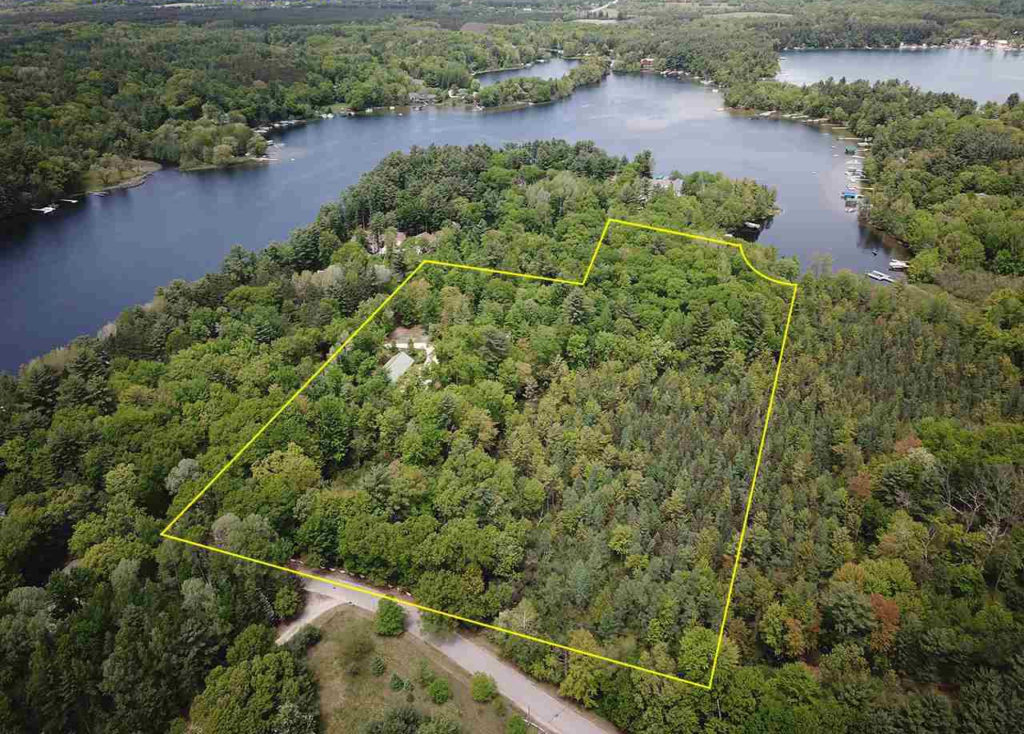

9. Choose a knowledgeable REALTOR®
If purchasing a waterfront property sounds like it is for you, make sure to choose a knowledgeable Realtor who has experience with waterfront properties. You want to make sure that your agent is aware of your wants and needs when it comes to a waterfront property right for you. Be sure to have a conversation with your agent beforehand to make sure that they have experience with these properties and understand exactly what you are looking for. Finding the perfect waterfront property can be time consuming and frustrating when the inventory is much less than landlocked homes. As with all real estate transactions, it is best to have a trustworthy agent who is representing your best interests. The Susan And Moe Team have expert agents who have experience with these special properties. If you are looking to purchase your waterfront dream home outside of the city, give us a call, we are happy to help!


